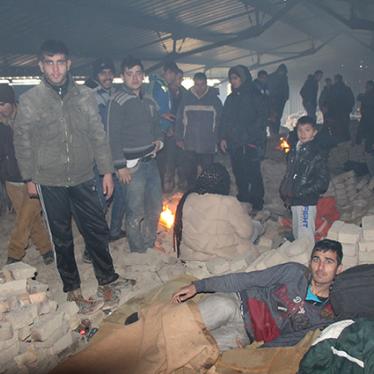
Europe’s Migration Crisis
Border restrictions in the Western Balkans and a deal with Turkey led to a significant decline in arrivals by sea to Greece of asylum seekers and other migrants, while boat migration from North Africa to Italy remains steady. By March, over 28,000 people had made the crossing in 2017, while more than 900 died or went missing in the attempt. European Union countries failed to take collective action to share responsibility equitably for asylum seekers or to create safe and legal channels to Europe. The European Commission failed to hold to account member states that violate EU asylum standards.
Over 55 percent of those taking the dangerous journey originate from countries beset by war or generalized violence, or having repressive governments, such as Syria, Afghanistan, Nigeria, Eritrea, and Iraq. Thousands of asylum seekers, including vulnerable people, are stranded in abysmal conditions on the Greek islands and along the Western Balkan route, with limited access to asylum. The EU continues to emphasize preventing departures and combating smuggling over a coordinated approach based on access to protection and respect for human rights, including through problematic cooperation with Turkey, Libya, and other transit countries.
The EU should sustain robust search-and-rescue operations in the Mediterranean and expand safe and legal channels into the EU. EU states should step up refugee resettlement from countries bordering Syria, notably Lebanon, Jordan and Turkey, and other refugee-producing countries, to reduce the need for dangerous journeys, facilitate integration and allow for screening and more orderly processing. EU countries should ensure more equitable responsibility sharing for asylum seekers, and enforce common EU standards on reception conditions and asylum procedures.
- Europe/Central Asia
 News Release
News Release - Europe/Central Asia
 News Release
News ReleaseEU: Boat Migration Demands Shared Responsibility
- Middle East/North Africa
 News Release
News ReleaseEU: Shifting Rescue to Libya Risks Lives
Videos Watch More
News
-
-
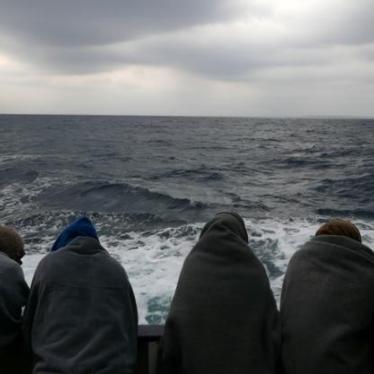 Dispatches
DispatchesPlaying Politics with People’s Lives
-
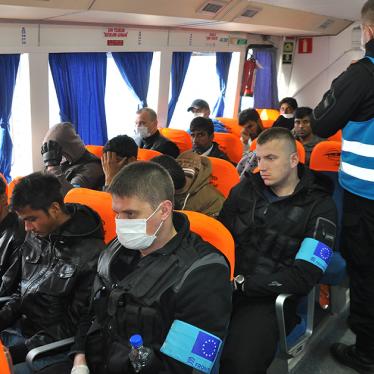 Dispatches
Dispatches‘My Brother is Being Deported Today’
-
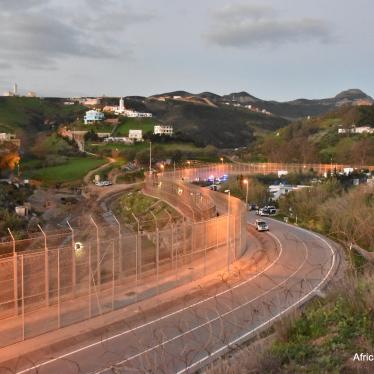
-
Commentary
Letting People Drown is not an EU Value
-
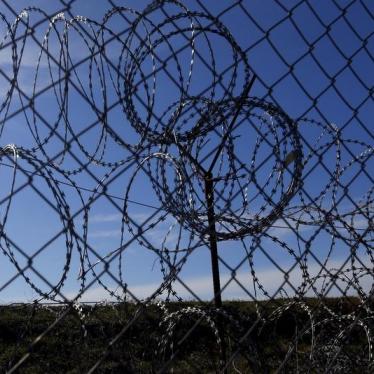 Commentary
CommentaryLost Opportunity In Hungary
-

-
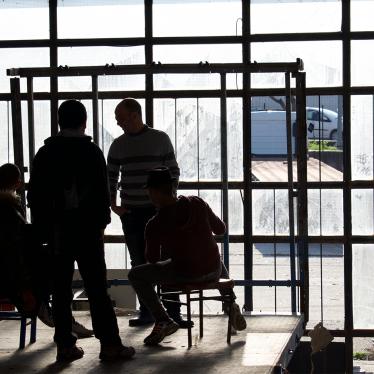
-
News Release
Greece: Reject EU Pressure on Asylum Seekers
-
-
-
 News Release
News ReleaseHungary: Draft Law Tramples Asylum Seekers’ Rights
-
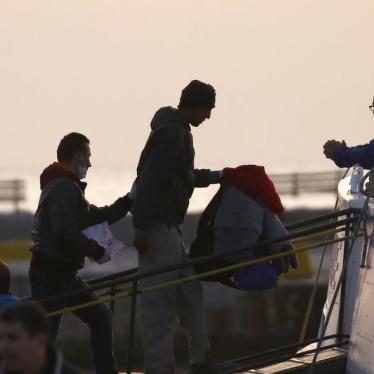
-
-
 Dispatches
DispatchesDeath and Despair in Lesbos
-
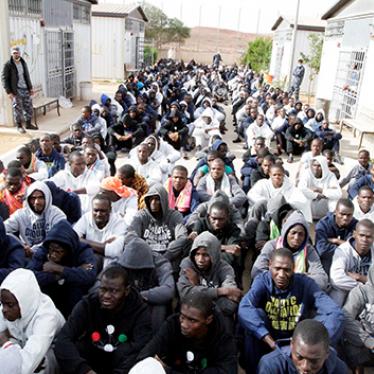 News Release
News ReleaseEU: Put Rights Above Politics
-
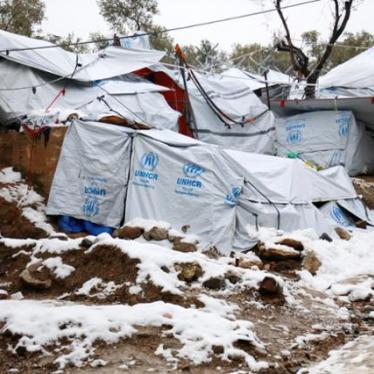 News Release
News ReleaseGreece: Dire Refugee Conditions on Islands
-
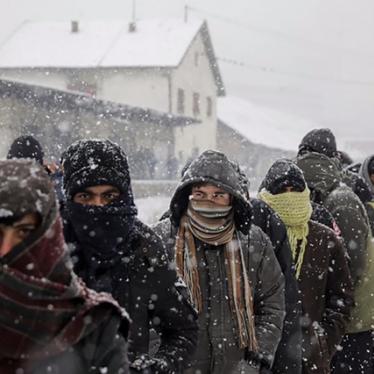 News Release
News ReleaseCroatia: Asylum Seekers Forced Back to Serbia
-
 News Release
News ReleaseEU: Inward Turn Puts Rights at Risk
-
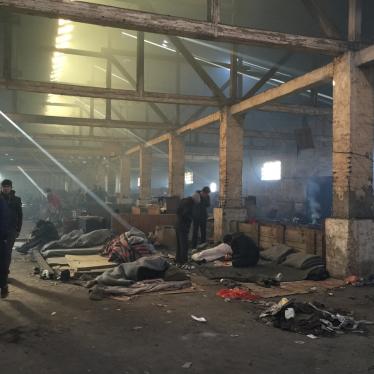 Dispatches
DispatchesAsylum Seekers Left in the Cold
-
-

-
 News Release
News ReleaseEU: Restore Rights Values to Migration Policy
-

-
 News Release
News ReleaseEU: Returns to Greece Put Refugees at Risk
-
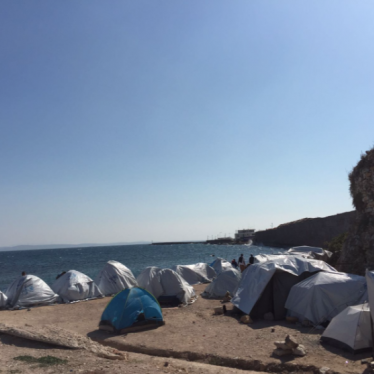
-
 Dispatches
DispatchesWalid Taleb’s Path to Justice in Greece
-
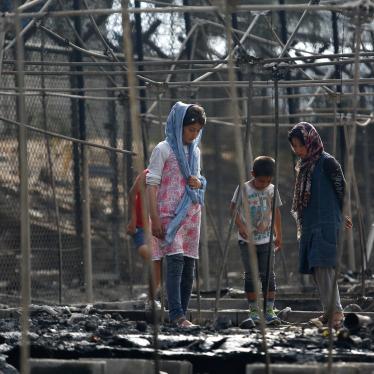
-
 News Release
News ReleaseEU: Show Leadership in Global Displacement Crisis
-
 News Release
News ReleaseEU Policies Put Refugees At Risk
-
 News Release
News ReleaseEU/US: Obama Should Remind Europe to Defend Rights
-
-

-
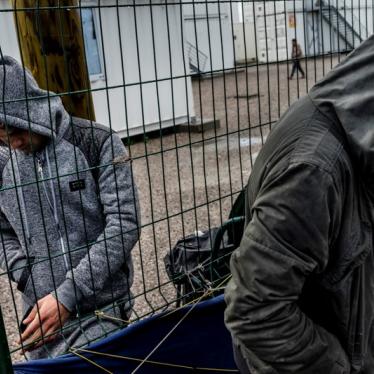
-
 Commentary
CommentaryRelocation Farce Brings Shame On Europe
-

-
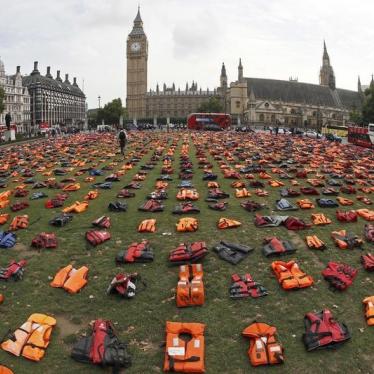 Dispatches
DispatchesWorld Refugee Summits Fail Refugees
-
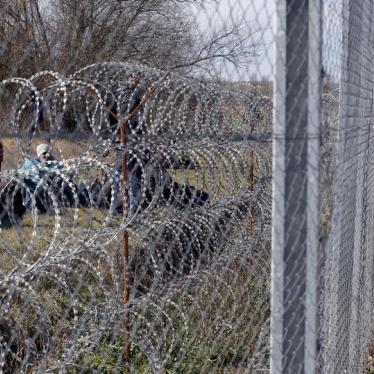 News Release
News ReleaseHungary: Failing to Protect Vulnerable Refugees
-
Commentary
Hungary’s War on Refugees
-
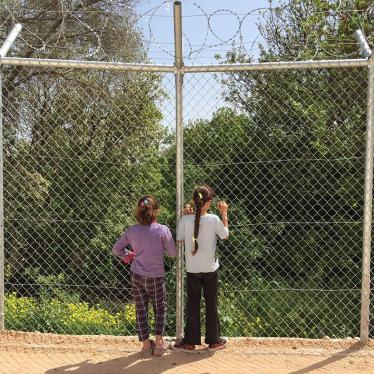
-
 News Release
News ReleaseProvide Genuine Refuge to World’s Displaced
-
 Dispatches
DispatchesHungary’s Xenophobic Anti-Migrant Campaign
-
Commentary
The tragedy of Greece's refugee children
-
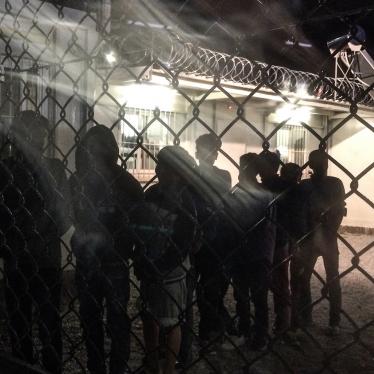
-

-
 Dispatches
DispatchesThe Death of a Small Syrian Boy
-
-
-
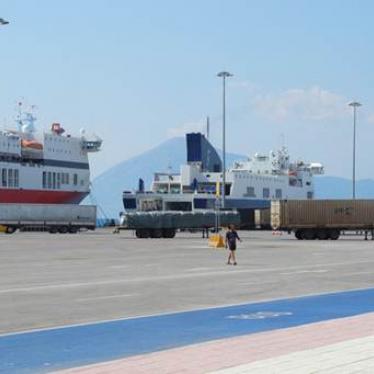
-
 News Release
News ReleaseGreece: Migrant Children in Police Cells
-

-
 News Release
News ReleaseHungary: Migrants Abused at the Border
-
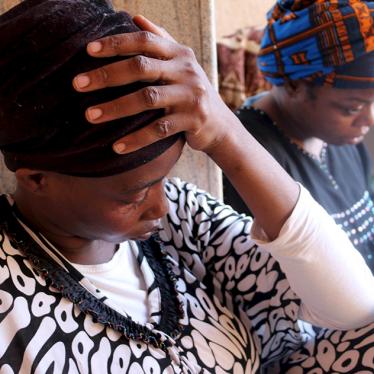 News Release
News ReleaseEU/NATO: Europe’s Plan Endangers Foreigners in Libya
-
-
 News Release
News ReleaseItaly: Children Stuck in Unsafe Migrant Hotspot
-

-
 News Release
News ReleaseSweden: Restrictive Asylum Bill
-
-

-
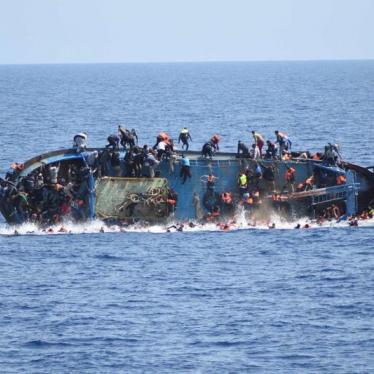 Dispatches
DispatchesDispatches: Deadly Week in the Mediterranean
-
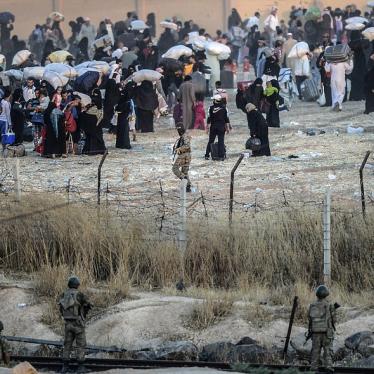
-
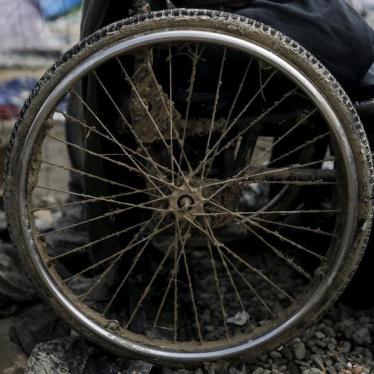
-
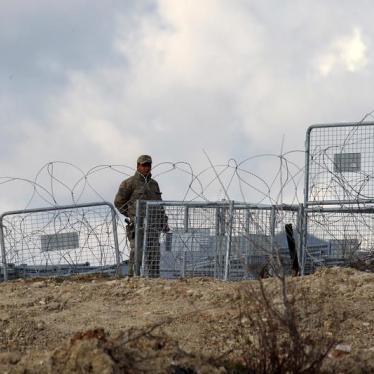 News Release
News ReleaseUN: Press Turkey to Open Border
-

-
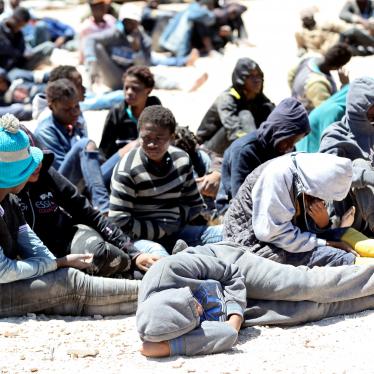
-

-

-

-
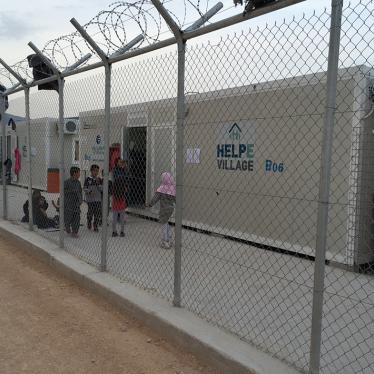 Commentary
CommentaryOpen Hotspots Again
-

-
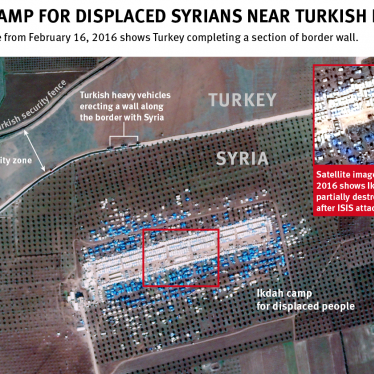
-
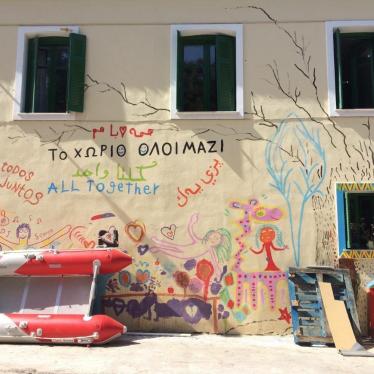
-

-
 News Release
News ReleaseEU: Asylum Proposals Go in Wrong Direction
-

-
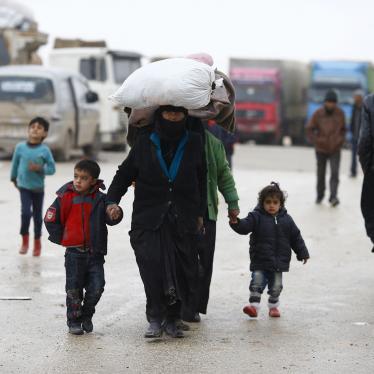 News Release
News ReleaseUN Meeting Ducks Syria Refugee Responsibility
-
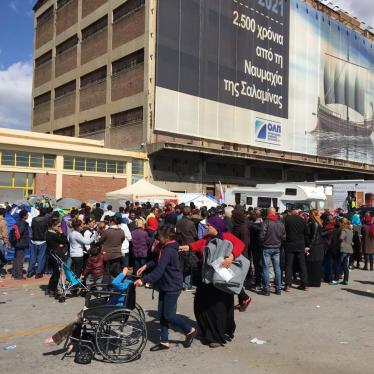
-
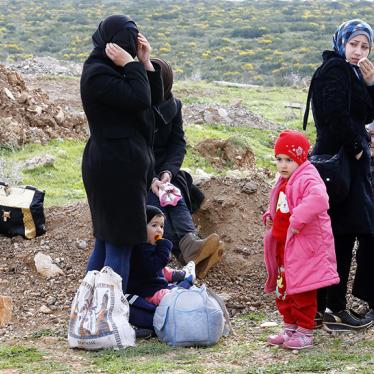 News Release
News ReleaseEU: Turkey Mass-Return Deal Threatens Rights
-
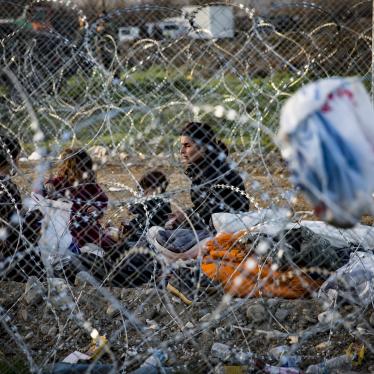 News Release
News ReleaseEU/Turkey: Mass, Fast-Track Returns Threaten Rights
-

-
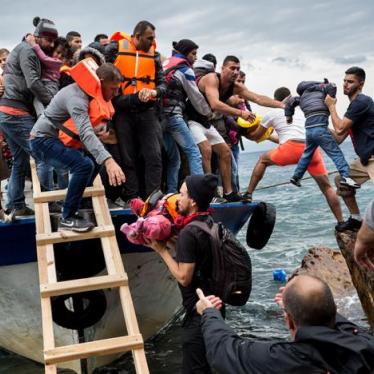 News Release
News ReleaseEU/Turkey: Don’t Negotiate Away Refugee Rights
-
 News Release
News ReleaseEU/Balkans/Greece: Border Curbs Threaten Rights
-

-
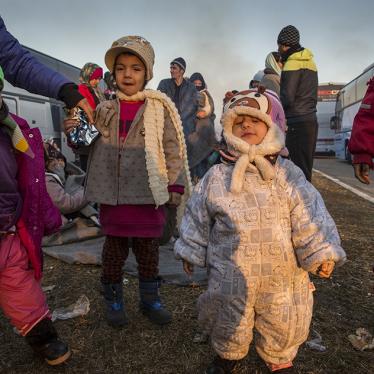
-

-
 Commentary
CommentaryFear and Loathing of Refugees in Europe
-
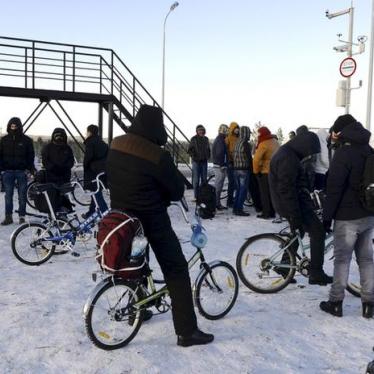 News Release
News ReleaseNorway/Russia: Don’t Jeopardize Asylum Seekers
-

-
-
-
 News Release
News ReleaseEU/Greece: Share Responsibility for Asylum Seekers
-
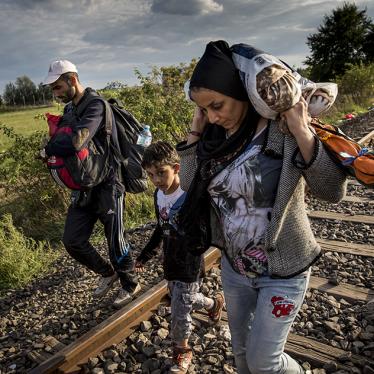 News Release
News ReleaseEuropean Union: Refugee Response Falls Short
-
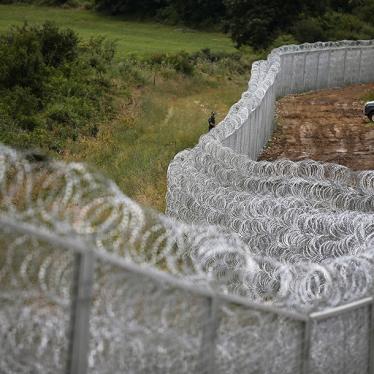
-
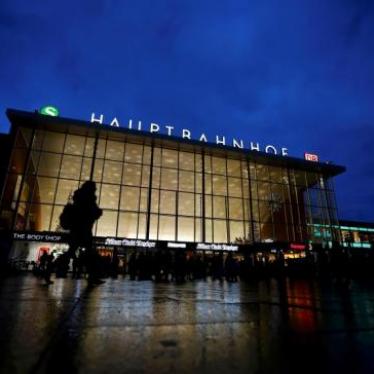
-
-
 News Release
News ReleaseMacedonia: New Move to Lock up Asylum Seekers
-

-
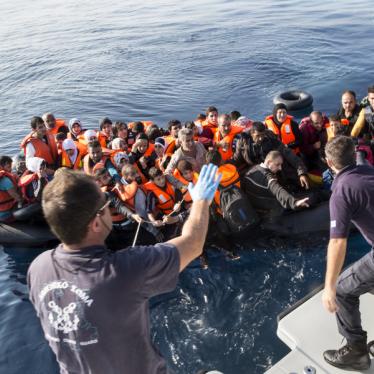
-
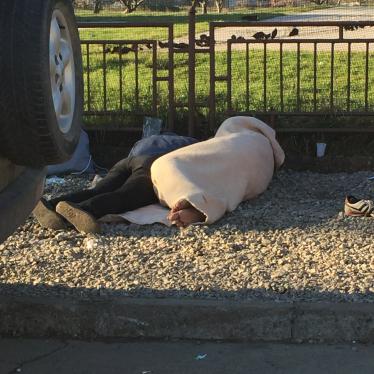
-
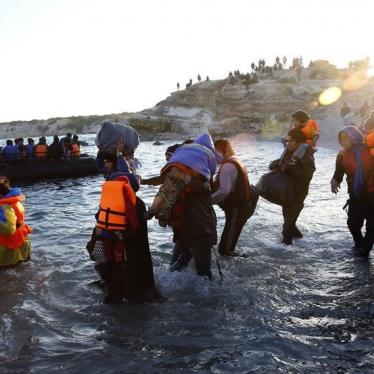
-
-
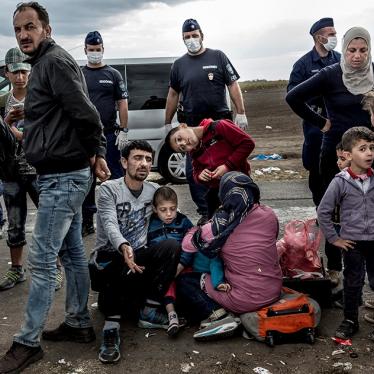
-
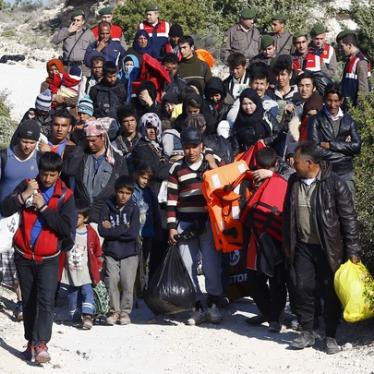
-
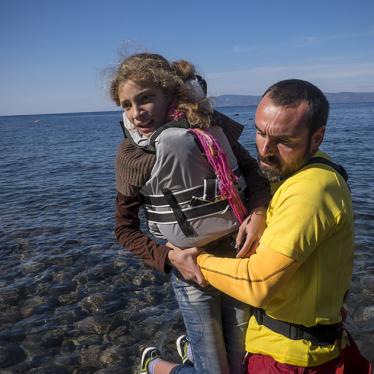
-

-
 News Release
News ReleaseAmid Insecurity, Protect Refugees
-
 News Release
News ReleaseEU: Steps to Address Refugee Crisis
-
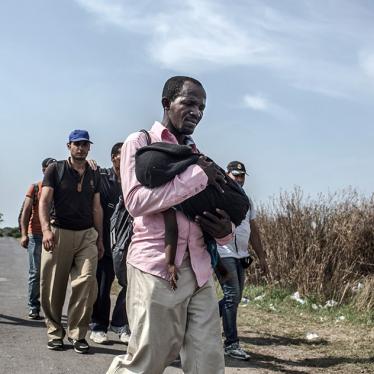 News Release
News ReleaseEU/AU: Put Rights at Heart of Migration Efforts
-
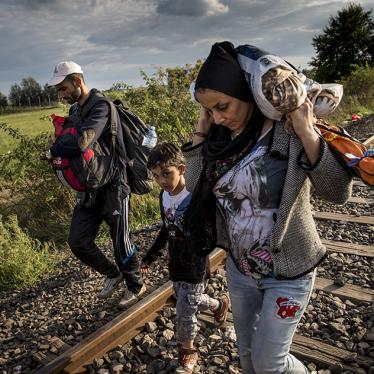
-
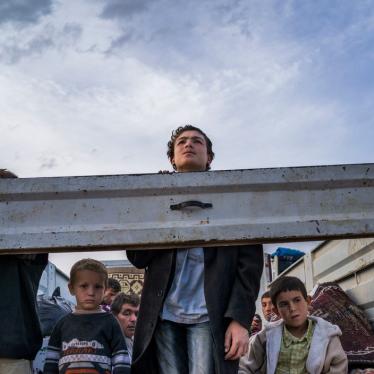 News Release
News ReleaseTurkey: 400,000 Syrian Children Not in School
-
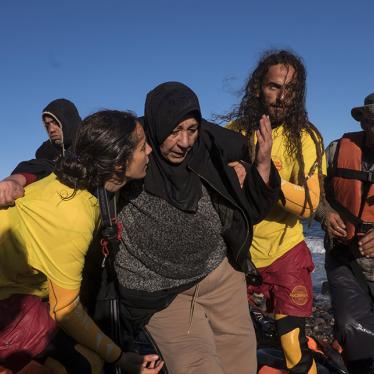
-
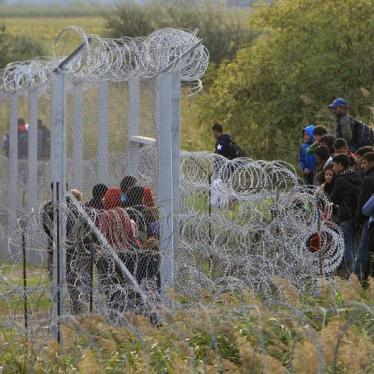
-

-
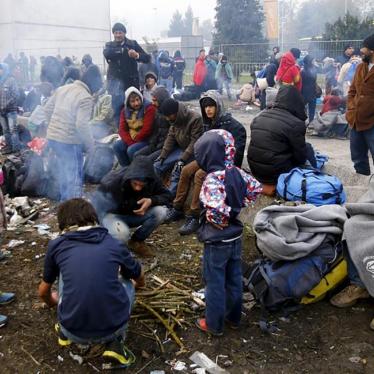 News Release
News ReleaseEU/Balkans: Contradictory Migration Plan
-
 News Release
News ReleaseEU: Human Toll of Border Closures
-
Commentary
No, EU, Turkey Is Not Safe for Everyone
-
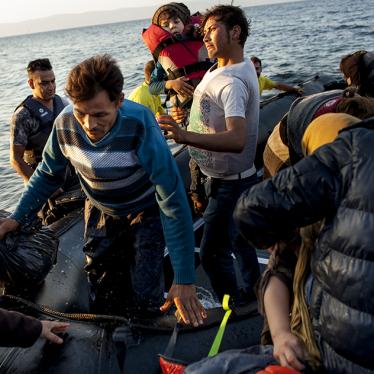
-

-

-

-

-

-

-

-

-

-
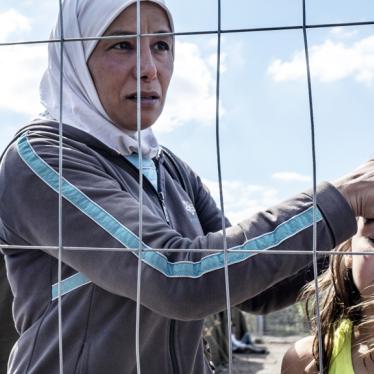
-
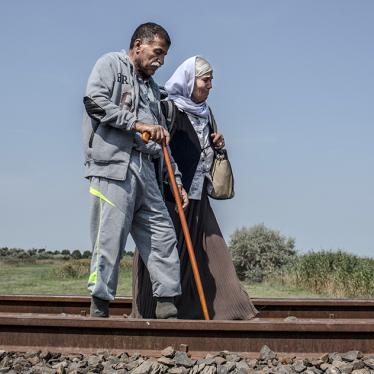 News Release
News ReleaseEU: Leaders Duck Responsibilities on Refugees
-

-
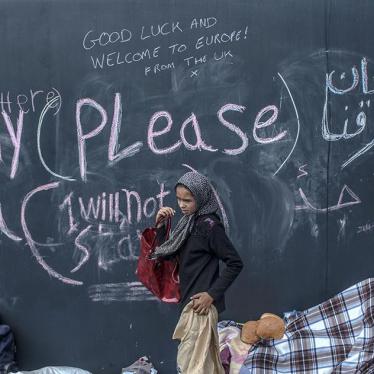
-
 News Release
News ReleaseMacedonia: Unchecked Police Abuse of Migrants
-
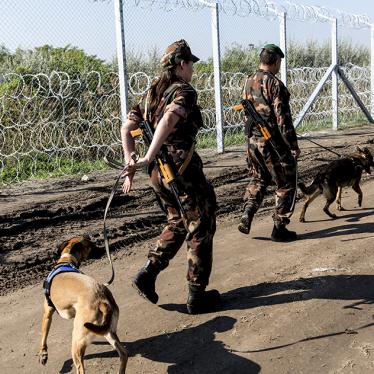 News Release
News ReleaseHungary: New Border Regime Threatens Asylum Seekers
-
 News Release
News ReleaseEU: Deflecting Responsibility to Protect Refugees
-
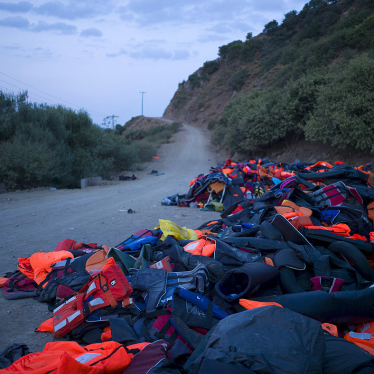 Dispatches
DispatchesDispatches: Let Refugees on Buses, Greece
-
 News Release
News ReleaseHungary: Abysmal Conditions in Border Detention
-
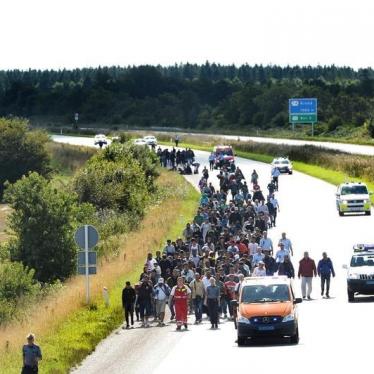 Commentary
CommentaryTime to Ditch ‘Dublin’
-

-
 Dispatches
DispatchesDispatches: Refugees March out of Hungary
-
 News Release
News ReleaseEU: Five Steps to Tackle Refugee Crisis
-
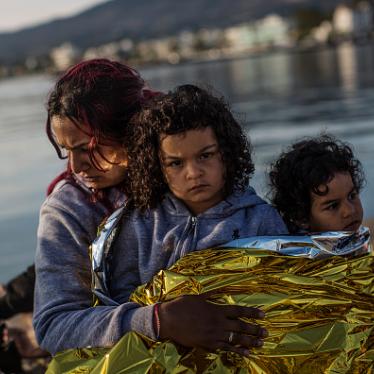
-

-
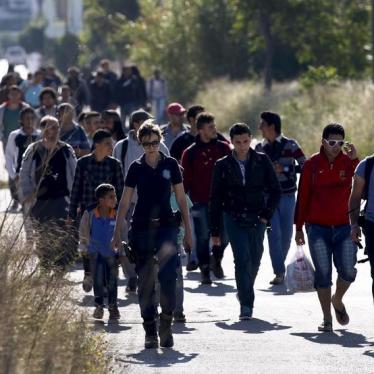 Commentary
CommentaryThe Refugee Crisis That Isn't
-

-
-
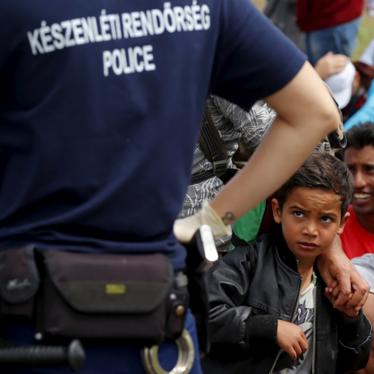 Commentary
CommentaryGrim crisis within EU borders
-

-
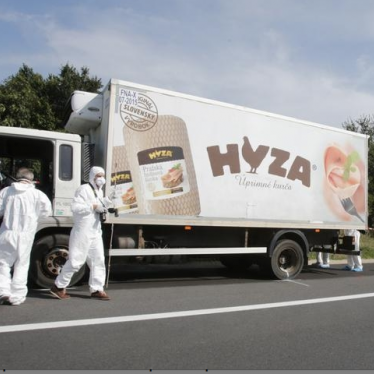
-
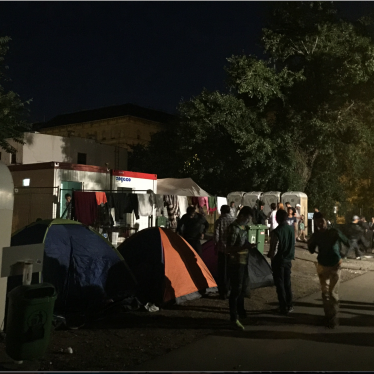
-
 News Release
News ReleaseMacedonia: Stop Police Violence Against Migrants
-
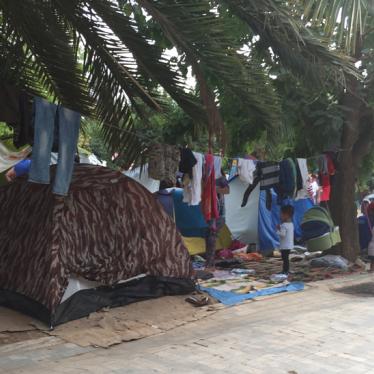 Dispatches
DispatchesDispatches: ‘We Want to Live Like Humans’
-
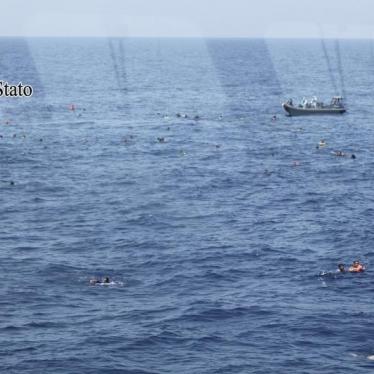
-

-
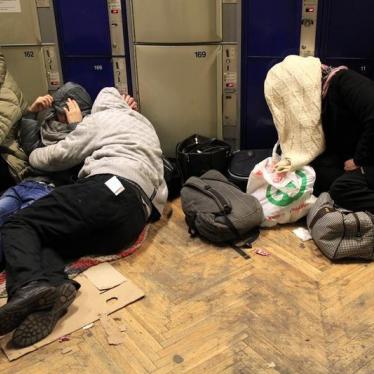
-
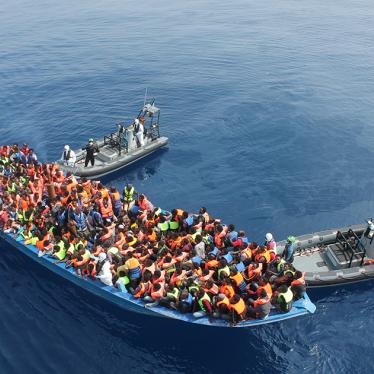
-

-
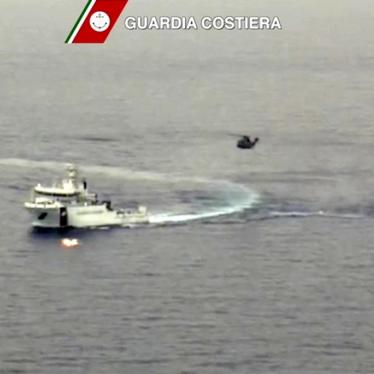
-

-
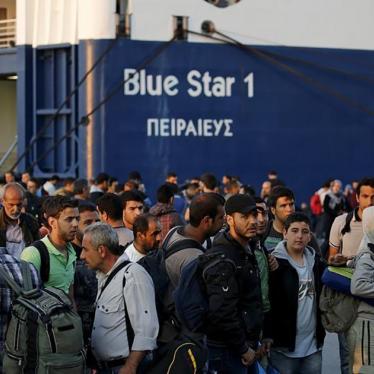
-

-

-

-
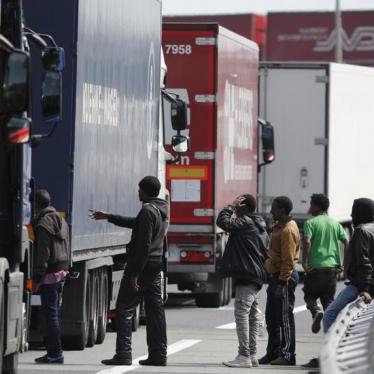
-
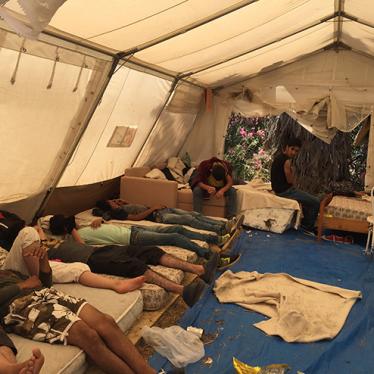 Commentary
CommentaryMediterranean Crisis: The Big Haggle
-

-

-
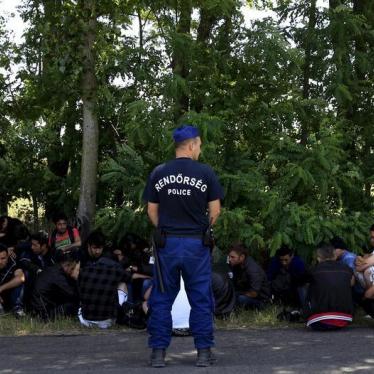
-
 News Release
News ReleaseEU: Rights Abuses at Home Drive Mediterranean Crisis
-
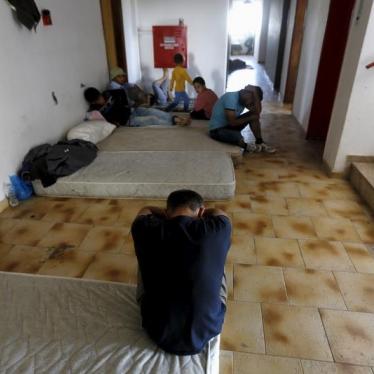
-
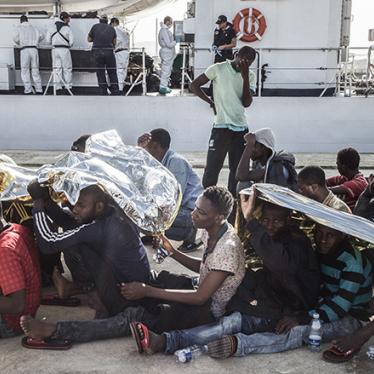 News Release
News ReleaseEU: Don’t Endanger Lives at Sea or Deny Protection
-

-
Commentary
Migrant smuggling: What are the EU options?
-
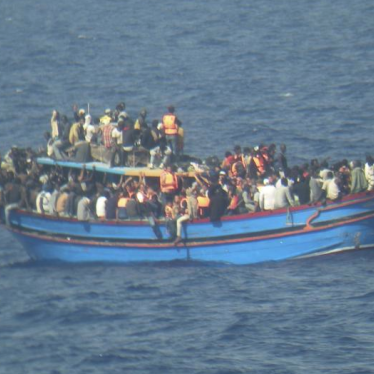 Commentary
CommentaryBrussels’ Personae Non Gratae
-

-
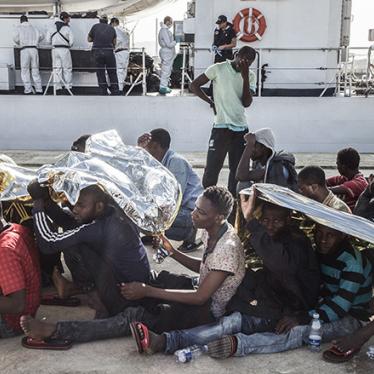 News Release
News ReleaseEU: Mixed Messages on Boat Migration
-

-
Commentary
Will Europe make migrant crisis worse?
-
 News Release
News ReleaseEU: Mediterranean Deaths Warrant Crisis Response
-
-
 News Release
News ReleaseEU: Intolerable Inaction Costs Lives at Sea
-
Reports More Reports
-

Greece: A Year of Suffering for Asylum Seekers
EU-Turkey Deal Traps People in Abuse and Denies Them Refuge
-

EU: Don’t Send Syrians Back to Turkey
Lack of Jobs, School, Health Care Spurs Poverty, Exploitation
-

Seeking Refuge
Unaccompanied Children in Sweden

An Agenda to Restore Protection
EU Policies Put Refugees At Risk. Read HRW’s Recommendations for Reform
Interactives More Interactives
-

Exodus: Asylum Seekers Flee Into Europe
“What will happen to us?” “Will they fingerprint us?” was the constant refrain as we watched a human wave of asylum seekers and migrants from Syria, Iraq, and Afghanistan crossing the Serbia-Hungary border.
-

Fleeing Syria and Stranded in Hungary
Interactive Photo Feature: Thousands of asylum-seekers, including many from war-torn Syria, arrive daily in Hungary, seeking a path to Germany and other Western European countries. Hungary has detained and at times refused to allow people to continue onwards to Western Europe, citing an EU regulation. As a result, thousands have been stranded at Budapest's Keleti train station. Human Rights Watch researchers interviewed scores. Here are their stories. >>



